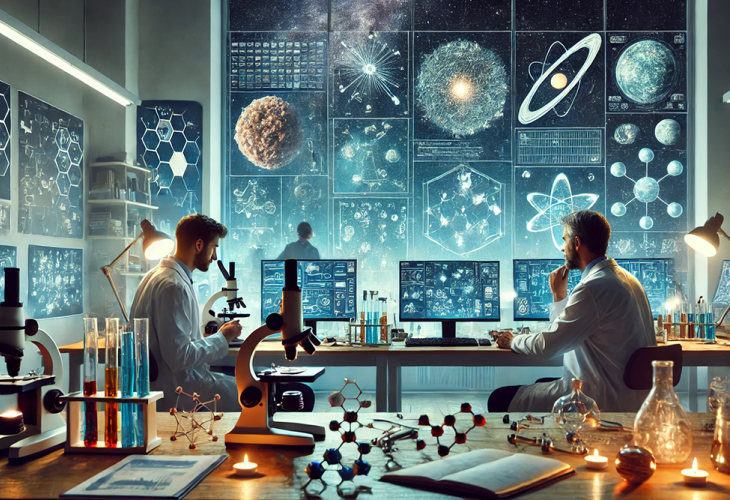In Search of God
Religion vs. Science: The Myth of Conflict and the Truth About Believing Scientists
Despite popular belief, faith and science have never been true enemies — many of the world’s leading scientists view their discoveries as evidence of divine order, not opposition to it

People often ask, “Who’s right — religion or science?” But why assume there’s even a conflict between them? Where did that idea come from?
If you asked someone a few centuries ago, “Who’s right, religion or science?” they would probably raise an eyebrow and reply, “What do you mean? What’s the connection between them? Why not ask who’s right — the musicians or the doctors?”
The notion of a clash between religion and science was invented by two 19th-century American writers, John William Draper and Andrew Dickson White, who published books about the supposed “conflict between religion and science.” The idea caught on, and ever since, many have repeated it as if it were obvious — especially skeptics, who find comfort in believing that “science is on their side.”
Yet research shows that this belief in conflict is held mainly by nonbelievers. A 2009 Pew Research Center survey found that only a small minority of scientists actually see a contradiction between faith and science. Most scientists understand that science explains how the universe works — not why it exists.
In fact, many world-class scientists are believers. When the atheist writer Richard Dawkins claimed in 2006 that “real scientists are necessarily atheists,” that same year three renowned scientists published books affirming faith. Harvard astronomer Owen Gingerich wrote The God’s Universe, arguing that the cosmos was purposefully designed. Geneticist Francis Collins, head of the Human Genome Project, published The Language of God, showing how nature’s intricate order points to a Creator. And cosmologist Paul Davies released The Goldilocks Enigma, highlighting the universe’s remarkable fine-tuning for life.
Pew’s 2009 study of members of the American Association for the Advancement of Science found that 51% of scientists believe in God or a higher power, while 41% identify as atheists or agnostics. Interestingly, belief was higher among younger scientists (ages 18–34), with 66% saying they believe in God or a higher force.
A global survey of over 22,000 scientists in eight countries found striking regional differences: in Italy, Turkey, India, and Taiwan, more than half described themselves as religious to some degree. In Hong Kong, only 26% of scientists were atheists, compared to 55% of the general population — meaning scientists there were actually more religious. Similar patterns appeared in Taiwan and other parts of Asia, where belief and science coexist naturally.
The so-called “war” between religion and science is largely a Western cultural myth.
Four key conclusions emerge:
There are far more believing scientists than most people realize.
Religion and science often overlap in their pursuit of truth.
Many scientists — even nonbelievers — see spirituality within scientific discovery.
The idea of a fundamental conflict between faith and science is a modern Western invention, not a universal reality.

